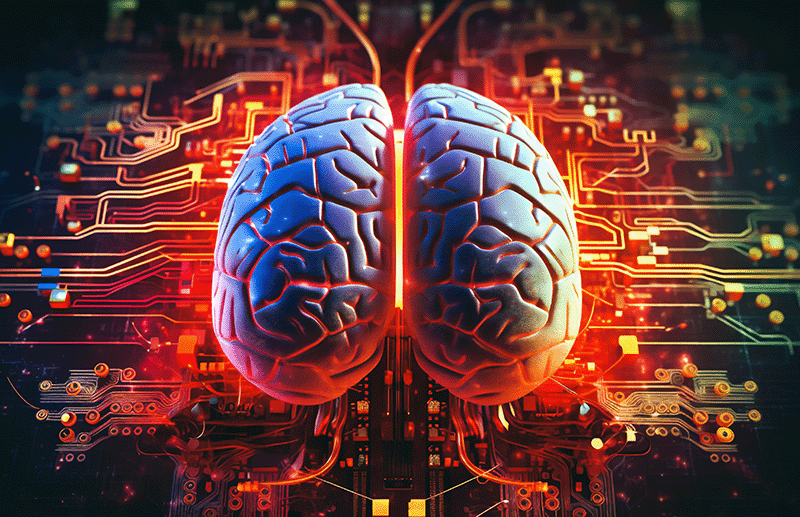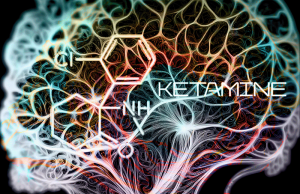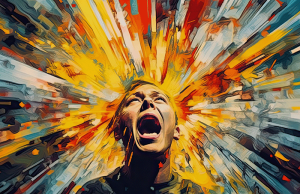Introduction
In the vast and complex world of neuroscience, one of the most intriguing areas of study is the exploration of how certain substances, such as ketamine and psychedelics, can profoundly alter our perceptions, emotions, and connections with ourselves and others. This blog post delves into the fascinating intersection of these substances and empathy, a fundamental human emotion that plays a crucial role in our social interactions and personal well-being.
Empathy, the ability to understand and share the feelings of others, is more than just a social nicety. It is a critical aspect of human connection that fosters mutual understanding, compassion, and cooperation. It allows us to perceive the world from different perspectives, to feel what others are feeling, and to respond to their needs with kindness and care. Empathy is the glue that holds our social world together, and it is also a key component of mental health, contributing to our sense of self and our relationships with others.
In recent years, the therapeutic use of ketamine and psychedelics has gained significant attention in the field of mental health. These substances, once stigmatized and misunderstood, are now being recognized for their potential to heal and transform. One of the most intriguing aspects of these therapies is their ability to enhance empathy, allowing individuals to reconnect with themselves and others in profound and meaningful ways.
In this blog post, we will explore the neuroscience of empathy, delve into the effects of ketamine and psychedelics on the brain, and discuss how these substances can foster empathy and self-connection. We will also examine the therapeutic implications of these findings, shedding light on the potential of ketamine and psychedelic therapies to transform mental health care.
Understanding Empathy
Before we delve into the relationship between ketamine, psychedelics, and empathy, it’s important to understand what empathy is and how it functions in our brains and lives.
Empathy, at its core, is the ability to understand and share the feelings of others. It’s more than just sympathy, which is feeling compassion for others’ hardships. Empathy involves stepping into another person’s shoes, feeling their emotions as if they were your own. It’s a complex emotional response that involves both cognitive and affective components. The cognitive component, often referred to as ‘perspective-taking,’ involves understanding another person’s thoughts and feelings. The affective component, on the other hand, involves sharing or mirroring the emotions of others.
The neuroscience of empathy is a rapidly growing field, and while there’s still much to learn, we do know that several areas of the brain are involved in processing empathetic responses. These include the anterior cingulate cortex, which is involved in emotional processing, and the medial prefrontal cortex, which is associated with understanding others’ mental states. The mirror neuron system, a network of cells that respond both when we perform an action and when we observe someone else perform that action, also plays a crucial role in empathy, enabling us to ‘feel’ the emotions of others.
Empathy is not just a social tool; it’s also a key component of mental health. It allows us to form and maintain healthy relationships, fosters a sense of belonging and connection, and can even buffer against stress and emotional distress. Lack of empathy, on the other hand, is associated with a range of mental health disorders, including narcissistic personality disorder, antisocial personality disorder, and certain forms of depression and anxiety. Enhancing empathy, therefore, is a promising avenue for improving mental health and well-being.
In the following sections, we’ll explore how ketamine and psychedelics can enhance empathy and foster a deeper connection with ourselves and others.
Ketamine and Psychedelics: An Overview
Ketamine and psychedelics, once relegated to the fringes of medicine due to their association with recreational use and counterculture movements, are now experiencing a renaissance in the field of mental health.
Ketamine, originally developed as an anesthetic in the 1960s, has been found to have rapid-acting antidepressant effects. In recent years, it has been increasingly used in the treatment of severe depression, particularly in cases that are resistant to traditional antidepressants. It’s also being explored as a treatment for other mental health disorders, including anxiety, PTSD, and OCD.
Psychedelics, a group of substances that includes LSD (lysergic acid diethylamide), psilocybin (the active ingredient in magic mushrooms), and MDMA (commonly known as ecstasy), have a much longer history. Used for centuries in various cultural and spiritual practices, these substances fell out of favor in the mid-20th century due to concerns about their safety and potential for abuse. However, in recent years, there has been a resurgence of interest in their therapeutic potential, with research suggesting that they can be effective in treating a range of mental health disorders, including depression, anxiety, PTSD, and addiction.
The science behind how ketamine and psychedelics affect the brain is complex and still not fully understood. However, we do know that these substances work in part by altering the activity of certain neurotransmitters, the chemical messengers that transmit signals in the brain.
Ketamine, for example, is thought to work primarily by blocking the NMDA receptor, a type of receptor for the neurotransmitter glutamate. This leads to an increase in the release of another neurotransmitter, BDNF (brain-derived neurotrophic factor), which promotes the growth and survival of neurons and is thought to play a key role in ketamine’s antidepressant effects.
Psychedelics, on the other hand, primarily affect the serotonin system. They bind to and activate a specific type of serotonin receptor, known as the 5-HT2A receptor, which is thought to lead to the profound changes in consciousness and perception that these substances can induce.
In the next section, we’ll delve deeper into how these substances can enhance empathy and foster a deeper connection with ourselves and others.
Ketamine, Psychedelics, and Empathy
The relationship between ketamine, psychedelics, and empathy is a fascinating area of study. Both ketamine and psychedelics have been found to enhance empathy, although they do so in slightly different ways.
Ketamine, for example, has been found to increase emotional empathy, the ability to share the feelings of others, in healthy individuals. This is thought to occur through its effects on the glutamate system, which plays a key role in emotional processing. In individuals with depression, who often have reduced emotional empathy, ketamine treatment has been found to normalize this response, allowing them to better understand and share the feelings of others.
Psychedelics, on the other hand, have been found to enhance both emotional and cognitive empathy, the ability to understand the thoughts and feelings of others. This is thought to occur through their effects on the serotonin system, which plays a key role in social behavior and empathy. In particular, psychedelics have been found to increase the ability to take the perspective of others, a key aspect of cognitive empathy.
These findings are supported by a growing body of scientific evidence. For example, a study published in the journal “Psychopharmacology” found that a single dose of ketamine increased emotional empathy in healthy individuals. Similarly, a study published in the “Journal of Psychopharmacology” found that psilocybin increased both emotional and cognitive empathy in healthy individuals.
In addition to this scientific evidence, there are numerous personal anecdotes and case studies that support the empathy-enhancing effects of ketamine and psychedelics. Many individuals who have undergone ketamine or psychedelic therapy report feeling a greater sense of connection with others, a deeper understanding of their feelings, and an increased ability to empathize with their experiences.
These findings suggest that ketamine and psychedelics have the potential to enhance empathy in a profound and meaningful way, offering a promising new avenue for the treatment of a range of mental health disorders. In the next section, we’ll explore the therapeutic implications of these findings.
Reconnecting to Ourselves: The Therapeutic Implications
The enhancement of empathy through ketamine and psychedelic therapies has profound implications for self-discovery, personal growth, and mental health treatment.
Enhanced empathy can lead to a deeper understanding of our own emotions and experiences, fostering self-discovery and personal growth. By allowing us to better understand and share the feelings of others, it can help us to see our own experiences in a new light, to gain insight into our own emotions, and to develop a greater sense of self-awareness and self-understanding. This can lead to increased self-compassion, improved self-esteem, and a greater sense of purpose and meaning in life.
In terms of mental health treatment, the empathy-enhancing effects of ketamine and psychedelics offer a promising new approach to a range of conditions. For example, they could be used to enhance the effectiveness of psychotherapy, by helping individuals to better understand and empathize with their own experiences and the experiences of others. They could also be used to treat conditions that are characterized by reduced empathy, such as certain forms of depression and anxiety.
However, it’s important to note that while the potential benefits of ketamine and psychedelic therapies are significant, they also come with potential risks and considerations. These substances can induce intense and sometimes distressing experiences, and their use should be carefully monitored by trained professionals. Furthermore, they are not suitable for everyone, and their use should be considered in the context of an individual’s overall mental health and medical history.
In conclusion, the empathy-enhancing effects of ketamine and psychedelics offer a promising new avenue for self-discovery, personal growth, and mental health treatment. However, further research is needed to fully understand their potential benefits and risks, and to determine how best to use these therapies in a safe and effective way.
Conclusion
In this exploration of the empathy of the brain, we’ve delved into the profound ways in which ketamine and psychedelics can enhance our ability to understand and share the feelings of others. We’ve seen how these substances, by altering the activity of certain neurotransmitters in the brain, can foster a deeper connection with ourselves and others, leading to self-discovery, personal growth, and improved mental health.
We’ve also discussed the therapeutic implications of these findings, highlighting the potential of ketamine and psychedelic therapies to revolutionize the treatment of a range of mental health disorders. However, we’ve also noted the potential risks and considerations associated with these therapies, emphasizing the need for careful monitoring and individualized treatment.
Looking to the future, it’s clear that ketamine and psychedelic therapies hold great promise. As our understanding of the brain and mental health continues to evolve, these therapies could play a pivotal role in fostering empathy, enhancing mental health, and transforming the way we understand and treat mental illness.
However, realizing this potential will require further research, as well as an open-minded approach to these therapies. We need to continue to explore the effects of ketamine and psychedelics on the brain, to refine our understanding of their therapeutic potential, and to develop safe and effective treatment protocols. We also need to challenge the stigma and misconceptions that surround these substances, and to recognize their potential as powerful tools for healing and growth.
The empathy of the brain, and the role of ketamine and psychedelics in enhancing this empathy, is a fascinating and important area of study. By continuing to explore this topic, we can deepen our understanding of ourselves, improve our mental health, and pave the way for a more empathetic and compassionate society.



